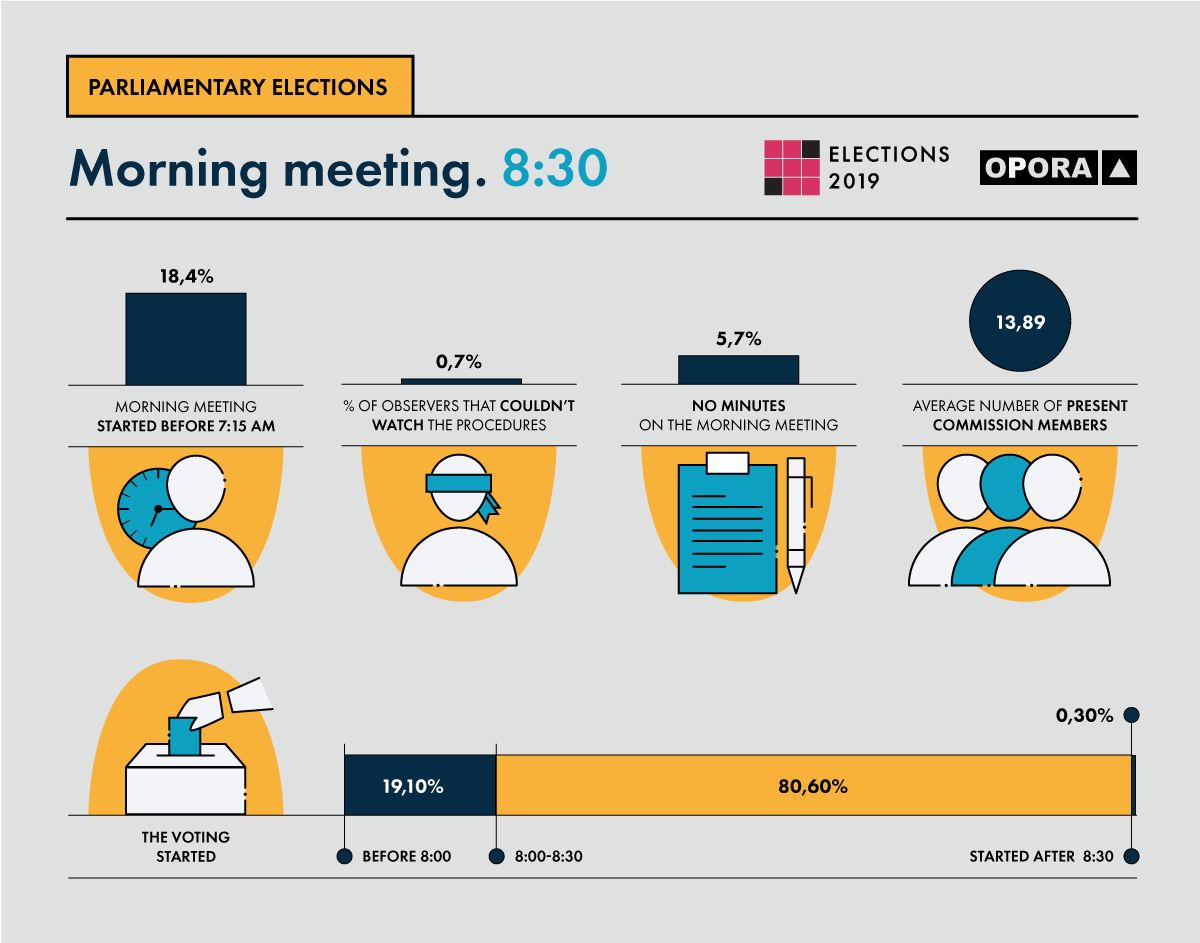Civil Network OPORA has used a statistical sampling to assess the quality of preparatory meetings in PECs and the start of voting.
Thus, according to the data from OPORA's observers, 81.6% of PECs started their preparatory meetings not earlier than 45 minutes before the voting. Such time of PEC opening is in line with law requirements, and gives all electoral subjects an opportunity to observe the adherence to procedures. 1.6% of precincts started their preparatory meetings before 7:00 am, and 16.5% of the PECs started to work between 7:00 am and 7:15 am. Thus, 18.4% of polling stations did not start their preparatory meetings at the time required by the Law. They could have hindered a comprehensive observation of the start of work in PECs by electoral subjects.

Almost 14 commission members in average work in each PEC during early parliamentary elections in Ukraine. OPORA's observers haven't noticed any violations when monitoring electoral procedures at preparatory meetings of PECs.
OPORA's observers have noticed that 5.7% of didn't keep the minutes of their preparatory meetings despite it is required by the law. This indicator of procedural violation is higher than in the second round of presidential elections in Ukraine. That time, only 2.2% precincts violated the law regulation requiring to keep minutes of preparatory meetings.
According to the Law of Ukraine on Elections of People's Deputies of Ukraine, the voting shall be held from 08:00 am to 08:00 pm. Observers of the organization noticed that some PECs did not start the vote at the established time. Thus, 19.1% of polling stations in the country started the voting process before 08:00 am, and 80.6% of the polls opened between 8:00 and 8:30. Moreover, 0.3% of polling stations gave the voters an opportunity to vote only after 08:30 am.
At 99.7% of polling stations in Ukraine, observers did not face any obstacles to monitoring how commissions prepare to the opening of polling stations.
At 0.4% of the PSCs, however, there were incidents when the rights of observers to monitor the preparatory procedures at polling stations were restricted.
